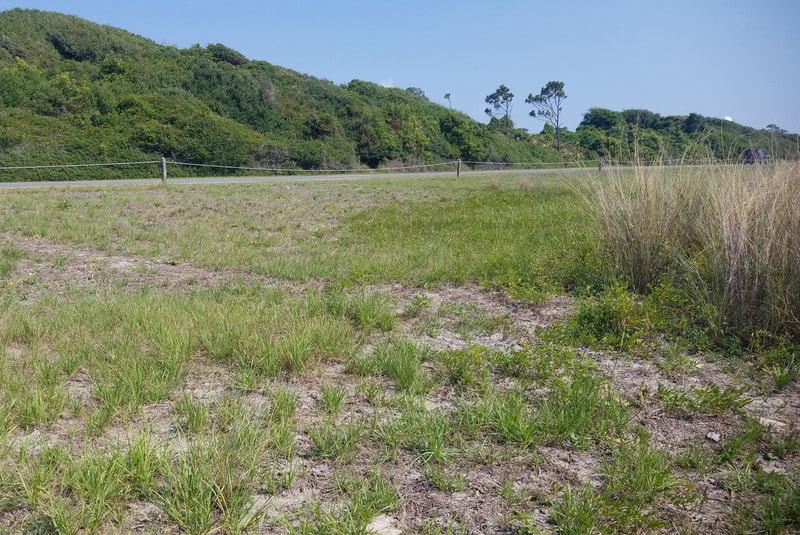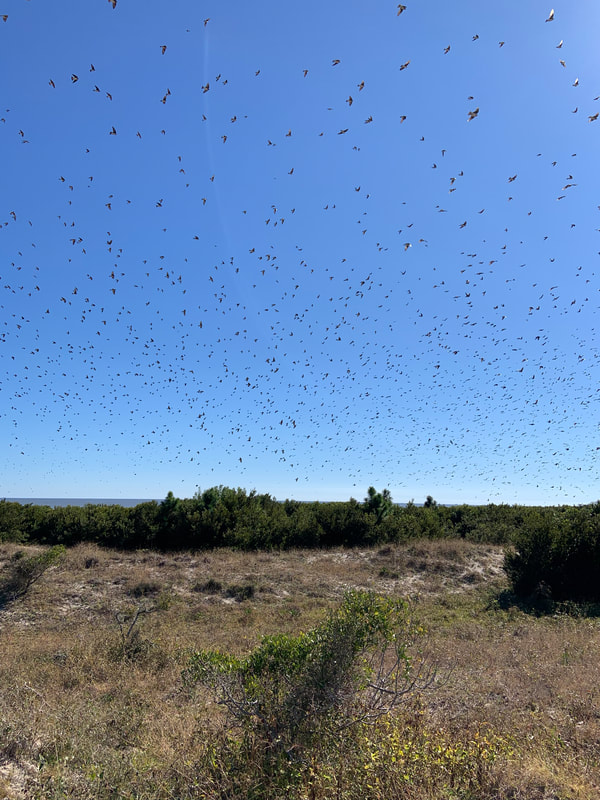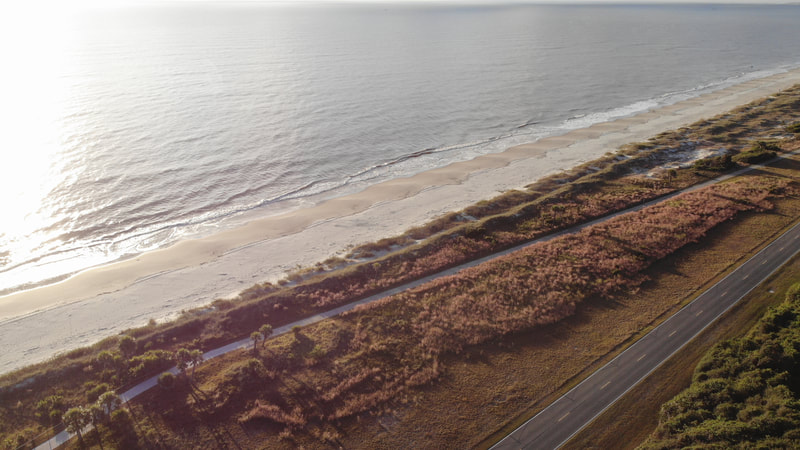|
by Dottie Head, Director of Communications Georgia Audubon has been awarded a grant from the Robert F. Schumann Foundation for expanded bird-friendly habitat restoration work on Jekyll Island. This grant will enable Georgia Audubon to restore three additional acres of maritime grassland dune habitat with native grasses and perennials to support migratory and resident birds. Additional project goals include educating and engaging community members in monitoring and advocating for birds and monitoring coastal bird populations and activity to create a set of data from which to better inform future conservation decisions. Georgia Audubon is partnering with the Jekyll Island Authority (JIA), UGA Marine Extension & Sea Grant Program, and Coastal Georgia Audubon Society on this project. The JIA is providing guidance on restoration site selection, ground reconnaissance, restoration/long-term site maintenance services, and assistance with work permitting. Coastal Georgia Audubon will assist in recruiting volunteers for the habitat restoration work and lead community bird walks at the project site. Georgia Audubon is also partnering with the UGA Marine Extension & Sea Grant Program via a coastal fellow who will oversee all community engagement and outreach activities at this site. These three acres are in addition to seven acres of restoration currently underway or already complete thanks to funding from other sources, bringing the total project area to more than 10 acres. The project goals are to improve habitat currently overrun by non-native plants and reinforce dune areas of Jekyll Island to make them more resilient and ecologically rich. As part of the project, Georgia Audubon’s habitat restoration crew and volunteers will remove non-native invasive plant species from the 3-acre project site, primarily Bahia Grass (Paspalum notatum) and Bermuda Grass (Cynodon dactylon). This will be followed by an installation of new native plant vegetation, including approximately 48,000 native coastal grass and perennial plugs (Muhlenbergia sericea, Panicum amarum, Sporobolus virginicus, Paspalum virginicus, Monarda punctata, Euthamia graminifolia, and Pityopis graminifolia), as well as approximately 20 pounds of native Broom Sedge seed. Georgia Audubon and partners will also involve the community in conservation activities through bird surveys and other community science activities and educational programs. Georgia Audubon’s professional restoration team, alongside volunteers and community partners, will work on specific target days to do the on-the-ground conservation work. The grant will also enable Georgia Audubon to produce a final project summary report to guide partners in future restoration and community engagement efforts. Follow-up assessments/maintenance will also happen well beyond the grant period as the habitat quality, wildlife and bird abundance surveys are continued and analyzed to assess the project’s success and future opportunities. “Georgia Audubon is excited to expand our habitat restoration work on Jekyll Island thanks to this generous grant from the Robert F. Schumann Foundation,” says Adam Betuel, director of conservation for Georgia Audubon. “This project builds on successful past and ongoing restoration work with the Jekyll Island Authority and deepens our ongoing partnership enabling us to build more ecologically productive space in a threatened habitat that experiences high levels of public visitation." One of Georgia’s barrier islands, Jekyll Island is notable for its pristine beaches, tidal salt marshes, and dense coastal forests. The natural features include quiet beaches where endangered sea turtles nest, critical "stopover" habitat for migrating shorebirds, and an abundance of wooded areas for millions of migrating birds, butterflies, and dragonflies. Tidal creeks and salt marshes border the island on its western side, while a rim of dynamic dunes, beaches, and the Atlantic Ocean border the eastern side. Jekyll Island, along with Georgia's twelve other barrier islands, protect valuable salt marshes, which represent 28 percent of all salt marsh habitat along the U.S. eastern seaboard. About Georgia Audubon: Georgia Audubon is building places where birds and people thrive. We create bird-friendly communities through conservation, education, and community engagement. (www.georgiaaudubon.org) About the Jekyll Island Authority: The Jekyll Island Authority (JIA) is a self-supporting state entity responsible for the overall management and stewardship of Jekyll Island, a Georgia State Park. JIA oversees the conservation and management of Jekyll Island and has set up parameters to protect the island’s ecosystem while ensuring it remains an inviting destination for visitors. (www.jekyllisland.com)
0 Comments
|
AuthorBirds Georgia is building places where birds and people thrive. Archives
July 2024
Categories |




 RSS Feed
RSS Feed

